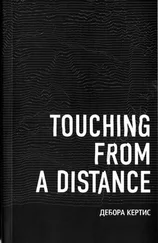Three of them were soldiers, but they seemed to belong to two different armies. Two were in loose-fitting gray uniforms and matching forage caps, while the other soldier wore blue and a slouch hat with some sort of adornment pinning the brim up. His left sleeve was empty, folded up, and attached to the elbow. On his right arm were three yellow stripes. Regardless of color and rank, the uniforms were torn and tattered. The remaining two men looked like so many others Håkan had seen on his journeys—deerskin leggings, flannel shirts, wide-brimmed hats. The civilians were on regular bays, but the soldiers rode thick, tall draft horses—stout, muscular, almost neckless, their fetlocks and hooves covered by thick tufts of hair full of burrs and thistles. Håkan knew nothing about breeds, but it was clear that those beasts were meant for the harness and not the saddle.
“Friend!” the blue soldier cried. “Hey, friend! We’re friends!”
Håkan realized that he was panting. Out of nowhere, a colony of little incandescent dots started bubbling, popping, vanishing, and reemerging before his eyes. His body felt less dense. Even if he had wanted to respond, his tongue, glued to his palate, was too dry and heavy to allow him to speak a single word.
One of the soldiers in gray muttered something, and the others laughed. They rode by some meat that was being jerked on frames. The other gray soldier took a piece, tasted it, and spat it out. He rubbed his tongue with his sleeve while cursing and making grotesque noises. More chuckles.
Håkan thought that he could smell them. Human stench. To what savagery would he be subjected? Because these were wild and unkind men. He could tell from their scars, their snickers, and, above all, their calmness—the calmness of people who know they can always rely on absolute violence. He looked at the gun in his hand as if someone had planted it there while he was distracted. Taking another life.
They stopped about fifteen paces away from him. Had he been seen? After conferring—in signs more than in words—one of the civilians put his rifle into his saddle holster, dismounted, and took a few steps toward Håkan.
“We mean no harm, mister. No harm at all. Just a few words.”
Showing himself unarmed was the only option. Perhaps his size would intimidate them. Perhaps his size would make them want to shoot him on the spot. He was reconciled with the idea of dying, but he did not want to share that singular, final experience with these brutes. Before putting the pistol down and proceeding to one of the exits, he realized, fleetingly, that it was the first time in his life that he was scared of men younger than himself.
The lion coat hung on one of the posts at the foot of the bed. It was not cold, but he put it on. After removing a section of the roof, he stepped on a table and climbed out.
Because he was crouching when he emerged from the trench, his height was not revealed at once, but as he uncoiled and came to an upright position, he looked ahead and saw amazement gradually overtaking everyone’s expression. Håkan himself was surprised. It had been years since he last stood next to another person or something of a more or less constant size—something that was not in nature or that he had not made with his hands. The men were like children. The horses looked wrong. Håkan and the men stared at each other; he, remembering what a man was; they, discovering what a man could be.
One of the civilians cocked his gun. The soldier in blue raised his single hand without looking away from Håkan.
“It’s you,” he said.
Håkan stared at his own bare feet. After so many years looking down at them, they had become objects removed from his own self. Even more, callous and insensible to touch, they had ceased to mediate between the world and his consciousness. They were one more everyday article.
“It is you,” the one-armed man in blue repeated. “See?” he cried, turning around to his comrades. “It’s him!” And then, facing Håkan once again, “The Hawk.”
The disgrace, the guilt, the fear came rushing back, wiping out all the years spent in solitude. He was back where he had left off.
Perhaps as a reaction to his shame, for a moment he forgot how recognizable he was and thought that if the blue soldier knew who he was, they must have met at some point. In the fraction of an instant, all the faces he could remember flashed through his mind. None of them matched the blue soldier. Perhaps the soldier had been one of the children on the emigrant trail. Maybe he had been one of the boys who had flung rotten vegetables at him when the sheriff had him on display. But there was an expression on the soldier’s face that Håkan knew well. It was the stare of people who had heard about him but never actually seen him. Briefly, he wondered if those uniforms meant that the newcomers were lawmen.
“The brethren killer, lion skin and all.”
The blue soldier’s explanation was unnecessary. The awestruck, frozen expression of the four remaining men showed that they had realized on their own who Håkan was.
“He’s alive?” asked one of the civilians to no one in particular.
“Abundantly,” said the blue soldier, gesturing to Håkan from head to toe.
Håkan looked around, pausing on the different sections of the burrow. Knowing that he would soon leave it forever, he understood its magnitude for the first time.
The blue soldier had rejoined the others, and they were having a muted discussion. Every now and again, they turned around and, still mesmerized, stared at Håkan.
“Do you have a gun?” someone asked.
“Inside.”
“Quite a place you got here,” a gray soldier said. “Quite a place.”
“How did you do it?” the blue soldier asked, ignoring his friend’s remark.
“I dig,” Håkan responded.
“No, no. How did you do it? All those things. You know, the brethren, escape from the law. Stay away for so long.”
“I walked,” he said, addressing only the last part of the question.
The men laughed.
“He walked,” someone said and giggled like an idiot.
“How long have you been here?”
“I don’t know.”
“You’re a legend, you know.”
Again, his feet.
One of the civilians took a swig from a flask and offered it to Håkan, who shook his head.
“Quite a place,” the gray soldier said again.
They dismounted, escorted Håkan to his cell, and, after taking the guns they found there, walked around, inspecting the burrow and claiming different sections for themselves.
Night came. After the men had had a long conversation by a fire removed from Håkan’s quarters, they asked him to join them. The one-handed soldier in blue spoke for all of them.
“We have some business to discuss with you. An offer.” He paused, peering into Håkan’s eyes. “We all admire what you’ve done. Like I said, you’re a legend. Getting those settlers. And then those heathens—those brethren. And then.” He laughed in advance. “And then getting away on the sheriff’s horse! I mean. Hell!”
Talk. This was what Håkan had been running away from. That he was being complimented did not make it better. He wanted no more talk.
“We have our own stories to tell, all of us, from the war. But nothing like you. Anyhow. Ever since peace reigns again,” he said, looking at the gray soldiers with a smirk, “we’ve been riding about, trying to survive. You know. Plenty of opportunities out there.”
Someone kept spitting into the fire. The embers hissed each time.
“So we were thinking. Thought we could use you. You wouldn’t have to do anything. Unless you wanted to, of course. All you do is show up. You just show up in your big lion skin. We walk into the place. Store, tavern, bank, whatever. Then you walk into the place. People see you. They freeze. We take it from there. It would even be your gang. The Hawk Gang or The Hawks or something. Take all the credit. But with your name, reputation, and. And. Well.” Failing to find the right word, he just pointed at Håkan. “With you. With you, no one would stop us.”
Читать дальше












